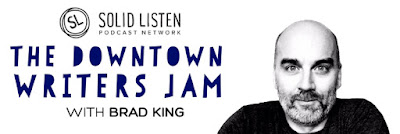I'll be in New Jersey, Oregon, Maryland, Texas, and California in October. I am exhausted just thinking about it! I hope to see you at one of these readings or events. That is what makes these trips so worthwhile to me, when I connect with readers face-to-face. My complete schedule of readings and appearances is at:
www.sergiotroncoso.com/readings/index.htm.
October 5, 2011, 5 PM---Weiss Center for Children’s and Young Adult Literature, with other authors of You Don’t Have a Clue: Latino Mystery Stories for Teens, Jersey City, NJ.
October 8, 2011, 6 PM---National Endowment for the Arts Stage, Wordstock Book and Literary Festival, Oregon Convention Center, Portland, OR.
October 16, 2011, 2 PM---The Writer’s Center, 4508 Walsh Street, Bethesda, MD.
October 18, 2011, 6:30-8:30 PM---Collegiate School, Collegiate Book Festival’s Opening Reception, 260 West 78th Street, New York, NY.
October 21, 2011, 5-7 PM---The Twig Book Shop, 200 E. Grayson, Suite 124, San Antonio, TX.
October 22-23, 2011---Texas Book Festival (Saturday: 11:30-12:30 PM, “Stories from El Paso,” and Sunday: 1:30-2:30 PM, “Latino Mystery Stories,” and 3:00-4:00, “The Art of Personal Reflection”), Texas State Capitol, Austin, TX.
October 24, 2011, 4:30 PM---San Francisco Public Library, The International Center, 100 Larkin Street, San Francisco, CA.
October 25, 2011---Reedley College, 995 North Reed Avenue, Reedley, CA.
Also, I recently posted a YouTube video of a reading and discussion of my novel,
From This Wicked Patch of Dust. I hope you enjoy it:
http://youtu.be/m4pwgIuGUOM.

I received a nice review of my new book of essays,
Crossing Borders: Personal Essays, from the El Paso Times: "Troncoso is a complicated man trying to understand a complicated world. In his quest for understanding, he eloquently shares lessons learned in 16 provocative essays. These very personal essays cross several borders: cultural, historical, and self-imposed. For example, he contemplates writer's block in 'A Day Without Ideas,' comparing it to a deathlike existence where nothing matters and he will ‘simply be there.’ In a painful letter to his sons detailing their mother's struggle with breast cancer, Troncoso the writer reveals his true identity as Troncoso the frightened, caring, and strong father. He takes on the 9/11 attackers, in a piece called 'Terror and Humanity,' not with hatred or revenge, but with a plea for basic humanity....the collection remains timely. We owe it to ourselves to read, savor and read them again."
Finally, I am working on several projects at the same time, while reading across the country for both books, correcting one son's essay for English, reviewing Spanish grammar for a test the other son will have today, feeding my beloved cat Ocistar, buying milk, and well, you get the picture. I am not that complicated; I am just exhausted. It has been a busy time, but so far I have not dropped anything I am juggling.
I love to hear from readers. That lifts me up like nothing else. Every time readers write to me about how they enjoyed one of my stories, or identified with one of my characters, or thought about their lives differently after reading my work, that day my bones do not ache and I feel as powerful as the Housatonic River. Thank you.










